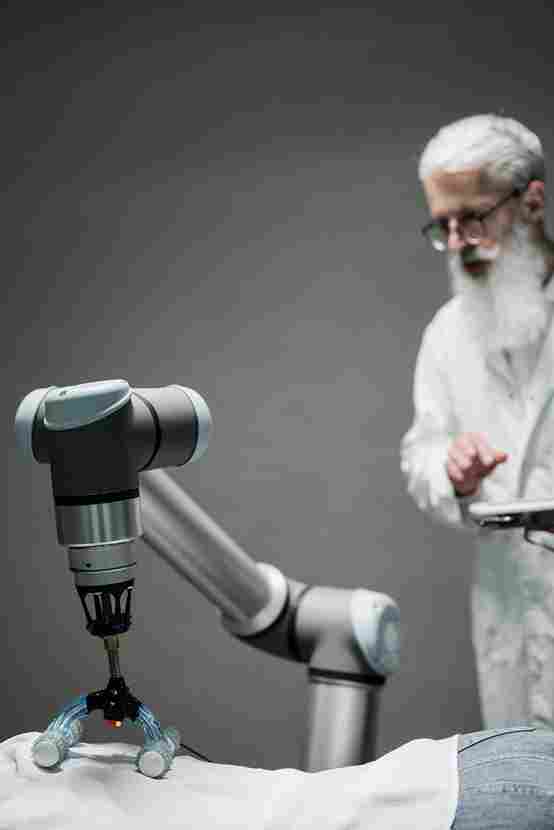Top Challenges in Deploying AI in Hospitals

Artificial Intelligence (AI) is no longer a futuristic concept—it is already transforming how hospitals deliver care. From predictive analytics and diagnostic imaging to AI-driven administrative tools, healthcare organizations in Washington and beyond are adopting AI to improve efficiency and patient outcomes.
However, despite its promise, deploying AI in hospitals comes with unique challenges. For healthcare leaders in Washington—whether at Seattle’s Swedish Medical Center, Tacoma General Hospital, or rural clinics across the state—navigating these challenges is crucial to ensuring successful adoption.
This article highlights the major obstacles hospitals face when implementing AI, using examples from Washington’s healthcare system, and provides guidance on how providers can address them.
1. Data Privacy and Security Concerns
AI systems rely heavily on patient data to function effectively. Hospitals in Washington must comply with both federal laws (like HIPAA) and state-level privacy protections to ensure sensitive patient data is handled responsibly.
- Washington Privacy Act (WPA): This proposed legislation strengthens rules around data use and privacy, directly affecting how hospitals manage AI tools.
- Real-world example: A Seattle-based health startup working with AI for predictive analytics faced delays in deployment due to strict security protocols required for cloud-based data storage.
Challenge: Striking a balance between innovation and regulatory compliance while protecting patient trust.
2. Integration with Existing Hospital Systems
Hospitals often rely on legacy electronic health record (EHR) systems that were not designed with AI in mind. Integrating AI with these systems is complex and resource-intensive.
- Example from Washington: MultiCare Health System in Tacoma has experimented with AI-powered scheduling tools but struggled to integrate them seamlessly with their older EHR platforms.
Challenge: Ensuring smooth interoperability between AI solutions and existing hospital IT infrastructure.
3. High Implementation Costs
AI deployment requires investment in advanced technology, skilled staff, and ongoing maintenance. For smaller hospitals in Washington—particularly those in rural areas—budget constraints can slow down or prevent adoption.
- Example: Rural hospitals in Eastern Washington have shown interest in AI for telemedicine and diagnostics but lack the funds to support full implementation.
Challenge: Balancing the high upfront costs of AI systems with the long-term benefits they provide.
4. Workforce Training and Adoption
AI is only as effective as the people using it. Many hospital staff members require training to understand and trust AI tools. Without proper training, resistance to new technology can undermine deployment.
- Example: At Providence Health in Seattle, physicians expressed concerns about AI diagnostic tools potentially replacing human judgment, highlighting the need for proper education and collaboration.
Challenge: Building trust and providing training so doctors, nurses, and administrators see AI as a support system, not a threat.
5. Algorithm Bias and Fairness
AI systems are trained on datasets, which may not always represent diverse patient populations. This can result in biased outcomes, particularly in states like Washington where healthcare serves diverse communities.
- Example: A Washington-based pilot project testing AI in dermatology faced challenges when the system underperformed for patients with darker skin tones, raising fairness concerns.
Challenge: Ensuring AI tools are trained on diverse, representative datasets to provide equitable care across all demographics.
6. Regulatory Uncertainty
AI regulations are still evolving. Hospitals in Washington must navigate both federal frameworks (HIPAA, FDA AI guidance) and state initiatives focused on ethical AI adoption.
- Example: Washington’s governor-led task force on AI in healthcare is exploring regulations, but hospitals often face uncertainty about how upcoming policies may affect existing AI systems.
Challenge: Staying compliant while adapting to evolving laws and ethical guidelines.
7. Reliability and Accountability
AI tools can assist in diagnosis and treatment recommendations, but who is accountable if an error occurs—the hospital, the software vendor, or the physician?
- Example: In a Washington hospital pilot project, an AI tool misclassified chest X-rays. The incident raised questions about liability, slowing down broader implementation.
Challenge: Establishing clear accountability for AI decisions in healthcare.
8. Limited Interoperability Across Networks
Washington hospitals are part of large healthcare systems and often collaborate across regions. However, AI solutions may not be compatible across multiple platforms, limiting scalability.
- Example: Hospitals in Spokane and Seattle using different AI vendors faced challenges sharing insights due to incompatibility.
Challenge: Creating AI systems that work across networks to support statewide healthcare goals.
How Washington Hospitals Are Addressing These Challenges
Despite these obstacles, Washington healthcare providers are taking proactive steps:
- Collaboration with universities: The University of Washington leads research on ethical AI frameworks for healthcare.
- Public-private partnerships: Seattle-based health tech startups are partnering with hospitals to test scalable AI solutions.
- Cloud-based healthcare software: Hospitals are adopting secure cloud platforms to enable safe AI deployment.
The Role of Inspire Web in Supporting AI Adoption
At Inspire Web, we help healthcare providers in Washington and beyond adopt AI responsibly and effectively. Our solutions focus on:
- Data privacy and HIPAA compliance
- Secure, cloud-based integration with existing hospital systems
- Training and resources for staff adoption
- Insights into Washington’s regulatory landscape
With Inspire Web, hospitals can embrace AI confidently, ensuring compliance, efficiency, and better patient outcomes.
Final Thoughts
Implementing AI in hospitals comes with many obstacles, ranging from unclear regulations to the need for staff training. In Washington, these difficulties are even greater due to strict privacy requirements, financial limitations, and the state’s diverse patient population.
However, by understanding these barriers and working with trusted technology partners, hospitals can unlock the full potential of AI while keeping patient care at the center.
Articles
Build your awareness and get inspired with our researched articles on how you can strengthen your well-being
Contact Us
-
InspireWebApp
-
support@inspirewebapp.com
-
7600 Georgia Avenue Northwest, Washington, DC 20012, USA
Streamline Your Workflow with Inspire — Subscribe Now!
Join hundreds of healthcare professionals who trust Inspire to manage their documentation faster and more accurately.
Key Benefits
- ✅ Instant access to all tools
- ✅ Secure & HIPAA-compliant
- ✅ Designed for health Care providers
Popular Articles

Clear and Consistent Communication
By Zukane Mbuih

Enhancing Provider-Patient Interaction
By Zukane Mbuih

Improving Patient Experience
By Zukane Mbuih

Faster Clinical Documentation
By Zukane Mbuih